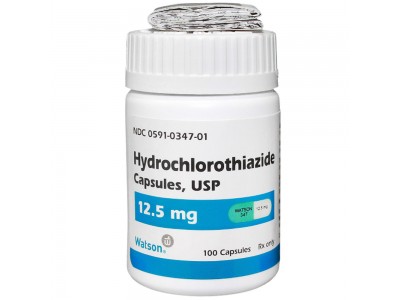Hydrochlorothiazide (HCTZ) is a diuretic medication commonly used to treat high blood pressure (hypertension) and edema (fluid retention). It works by increasing the amount of urine produced, which helps the body get rid of excess salt and water. This reduction in fluid volume can lead to a decrease in blood pressure.
For individuals with low blood pressure (hypotension), the use of hydrochlorothiazide should be approached cautiously and under the guidance of a healthcare professional. Here are some considerations:
Assessment of Blood Pressure: Before starting hydrochlorothiazide or any antihypertensive medication, it's crucial to assess the patient's baseline blood pressure. If the blood pressure is already low, using hydrochlorothiazide may further lower it, potentially causing symptoms like dizziness, lightheadedness, and fainting.
Underlying Conditions: Individuals with low blood pressure may have underlying medical conditions (such as certain heart conditions or dehydration) or be taking medications that contribute to hypotension. Adding hydrochlorothiazide could exacerbate these effects.
Dose Adjustment: Healthcare providers may consider starting with a lower dose of hydrochlorothiazide or titrating the dose slowly to minimize the risk of significant blood pressure drops. This approach allows for monitoring of blood pressure and symptoms.
Monitoring: Regular monitoring of blood pressure and electrolyte levels (such as potassium) is important when using hydrochlorothiazide. This helps ensure that the medication is effective in lowering blood pressure without causing harmful side effects related to low blood pressure or electrolyte imbalances.
Symptom Awareness: Patients should be educated about the symptoms of low blood pressure and advised to report any dizziness, fainting, or other concerning symptoms promptly.
Individualized Approach: The decision to use hydrochlorothiazide in individuals with low blood pressure should be based on a thorough assessment of the risks and benefits by a healthcare provider. They will consider the patient's overall health status, medical history, and current medications before making recommendations.
In summary, while hydrochlorothiazide is effective for lowering blood pressure in hypertensive patients, its use in individuals with low blood pressure requires careful consideration and monitoring to minimize the risk of complications. Always consult a healthcare provider for personalized advice regarding the use of hydrochlorothiazide or any medication.

